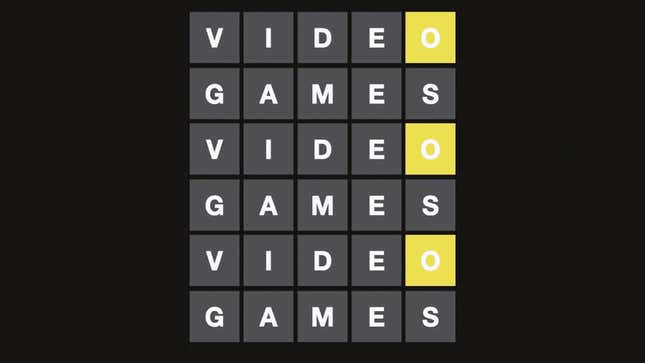
The creator behind Wordle, a free browser-based puzzle game, has no plans to include ads into his suddenly super-popular game, explaining in a recent interview that he doesn’t understand why some things can’t just be fun. Creator Josh Wardle also seems uninterested in converting Wordle into a mobile game as he doesn’t appreciate the way many of those apps try to consume as much of your attention as possible.
Wordle asks users to puzzle out a hidden word in six attempts. Once you guess the word or run out of tries, you have to wait until the next day for a new puzzle. Over the last few weeks, Wordle has exploded in popularity and is probably filling your Twitter timeline with green and yellow boxes. It’s a very simple game that for many people has become a perfect way to start their morning, like a nice cup of coffee for your brain.
You might expect that, as Wordle becomes more and more popular, the creator might plan on monetizing his hit. But in a recent interview with BBC Radio 4 (which was spotted by Eurogamer,) Wardle said he has no such plans.
“I don’t understand why something can’t just be fun,” Wardle said. “I don’t have to charge people money for this and ideally would like to keep it that way.”
Wardle seemed equally uninterested in bringing Wordle to mobile devices via an app, telling the BBC that he is “suspicious” of mobile games that constantly bug players for their attention via settings like push notifications. In fact, Wardle is quite happy that his little puzzle game runs contrary to that.
“I like the idea of doing the opposite of that—what about a game that deliberately doesn’t want much of your attention,” Wardle continued. “Wordle is very simple, and you can play it in three minutes, and that is all you get. There are also no ads, and I am not doing anything with your data. And that is also quite deliberate.”
Read More: Getting Bored And Walking Away Is How Most Games End For Me Now
These days, so many video games across all platforms, not just mobile, seem dedicated to sucking players in and nagging them constantly to keep playing. Far Cry 6 sent people emails pushing them to return and play more, even after some folks had sunk more than 30 hours into the open-world shooter. Battle passes have also become a popular way to get players invested in a game and return, day after day, to spend hours grinding away on challenges before the season ends and they lose out on all the possible rewards and items.
All of this and more has led to a situation where it can sometimes feel like a job to play some modern online games. So having a game like Wordle, built around only playing for a few minutes a day and then purposely locking you out, is oddly refreshing and something I hope to see more of. Perhaps Wordle’s success will inspire a string of copycats that try a similar approach, a prospect I’m very excited about. After all, I’ve got plenty of 60-hour open worlds to explore these days.